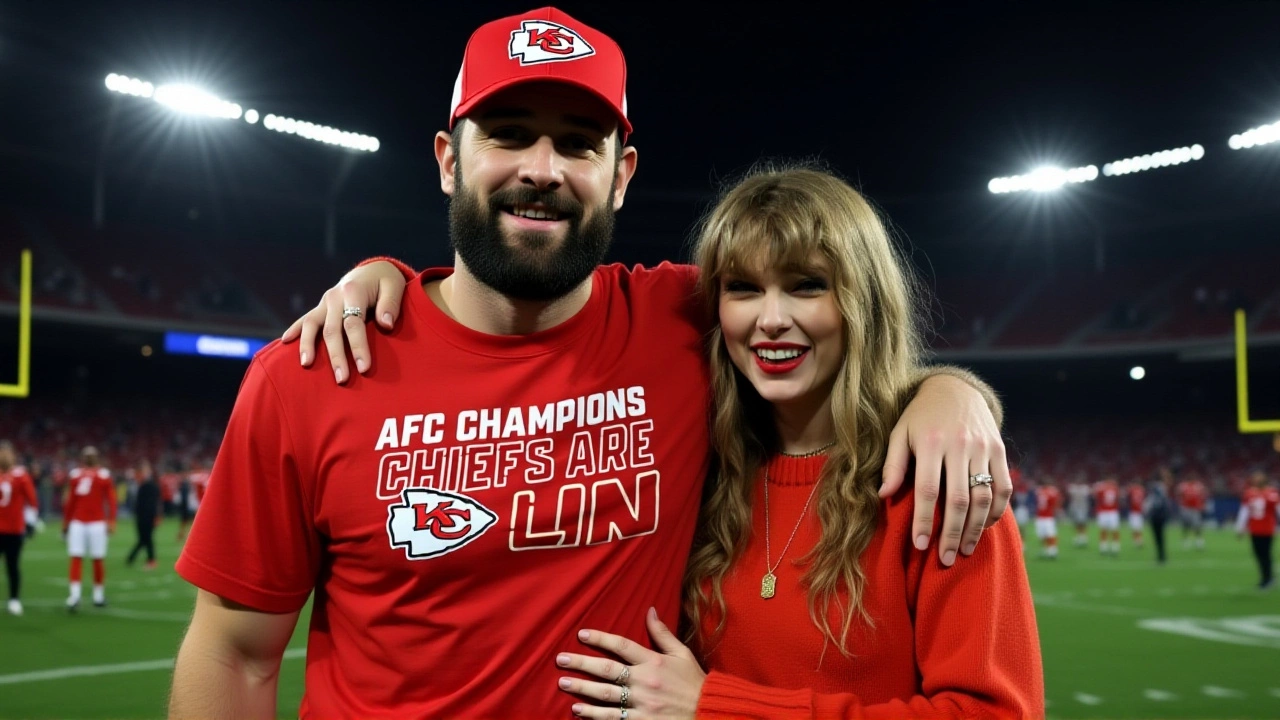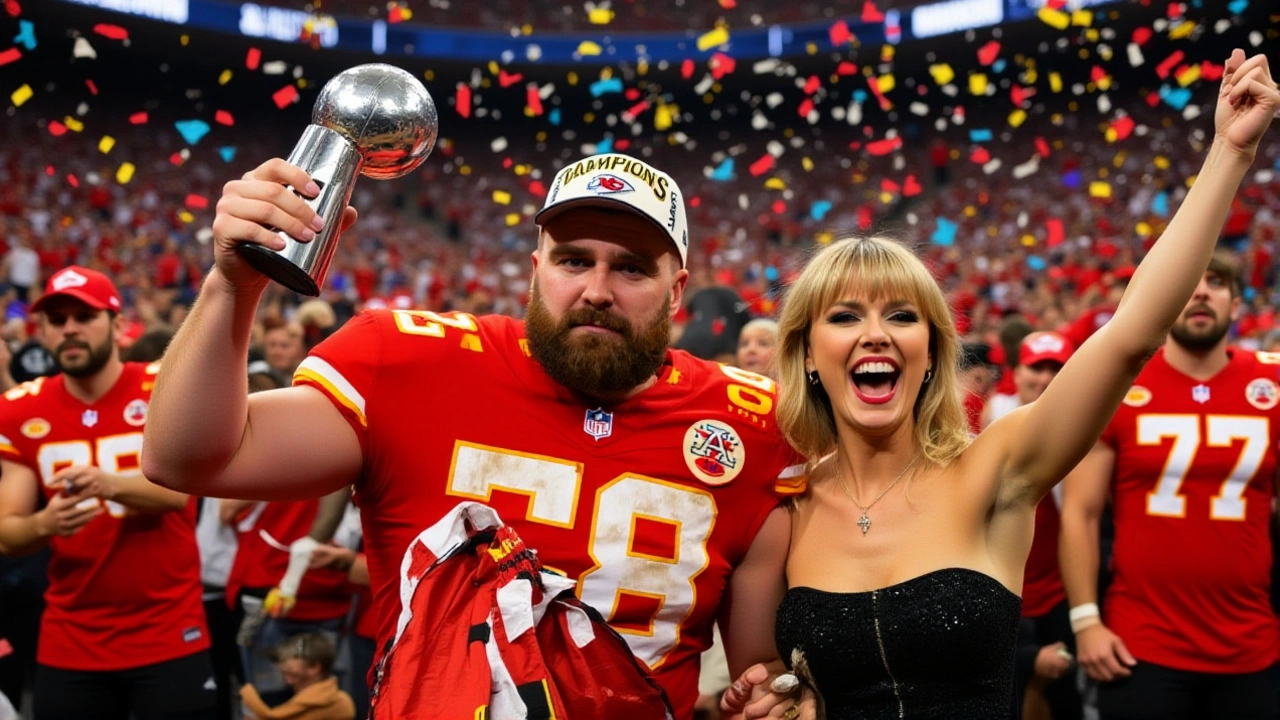When Taylor Swift, singer‑songwriter and Republic Records dropped her twelfth studio album The Life of a Showgirl on , the title track instantly sparked conversation across streaming platforms. Joining her on the dramatic duet was Sabrina Carpenter, pop vocalist and longtime admirer of Swift, whose own debut album Short n’ Sweet earned the singer’s public endorsement the previous year. The track’s production was helmed by veteran hit‑makers Max Martin and Shellback, creating a minimalist clap‑driven beat that strips back Swift’s usual arena‑ready gloss. The song debuted as part of the "The Life of a Showgirl" album release eventLos Angeles, instantly becoming a cultural talking point because it frames fame through a theatrical, multi‑perspective narrative.
Background: Swift’s Twelfth Album and a Full‑Circle Collaboration
Swift’s last three records have all leaned into self‑reflection, but this one feels like a full‑circle moment for Carpenter. Growing up in Lenox, New York, Carpenter learned to play Swift’s early country hits on a battered piano, later covering "All Too Well" at school talent shows. By 2023, she opened for Swift’s blockbuster Eras Tour, earning a backstage pep talk that she publicly thanked in a Instagram Live chat on . The new duet, therefore, isn’t just a feature; it’s a passing of the torch that mirrors the album’s theme of legacy and sacrifice.
Deconstructing “The Life of a Showgirl”: Lyrics, Narrative, and Production
The track opens with a slow, steady clap—a nod to circus drum rolls—while Swift’s voice glides over a sparse synth pad. The lyricism is deliberately theatrical, framing the story as a backstage confession. The first verse adopts the viewpoint of a fan waiting by the curtain for a performer nicknamed “Kitty.” Lines like “Pretty and witty, making money just by being seen” set a glossy stage before the chorus pulls the rug, warning listeners: “You don’t know the life of a showgirl, babe.”
Musical texture and minimalist beat
Martin and Shellback stripped away the usual brass and layered vocal stacks, opting for a muted percussive rhythm that feels like a metronome ticking inside a dressing room. This restraint forces the narrative to sit front‑center, a technique Swift first used on “My Tears.” The production also features a subtle bass swell that mimics a heartbeat, reinforcing the song’s tension between glamour and vulnerability.
Voices Behind the Track: Carpenter’s Story and Swift’s Veteran Lens
Carpenter’s verse dives into Kitty’s gritty backstory: “She was a menace, the baby of the family in Lenox, her father whored around like all men did, her mother took pills and played tennis.” Those stark images explode the song’s earlier sparkle, delivering a generational punch that critics describe as “a raw confession from a rising star who’s already tasted the dark side of fame.”
Swift, playing the role of an established veteran, interjects with a self‑aware pre‑chorus: “They gave her the keys to this city, then they said she didn’t do it legitly.” The invented adverb “legitly” sparked a TikTok meme wave, with fans dissecting its meaning and the broader commentary on how the industry questions women’s credibility.
Industry Reaction: Critics, Fans, and the Broader Conversation on Fame
Within hours of release, the track amassed 12.4 million streams on Spotify and 1.8 million views on YouTube, sparking a flood of lyric‑analysis videos. Rolling Stone called it “a generational dialogue that unpacks the price of stardom without sacrificing pop sensibility.” Meanwhile, the #ShowgirlTruth hashtag trended on Twitter, with fans sharing personal stories of exploitation in touring circuits. A spokesperson for the Musicians’ Union praised the song’s “candid spotlight on mental‑health pressures” and hinted at a possible industry‑wide forum on performer welfare.
Some detractors, however, argued the track romanticizes suffering, pointing to the line “I’d sell my soul to have a taste of a magnificent life” as potentially glorifying self‑destructive ambition. The debate underscores a lingering tension: can pop music responsibly discuss the dark side of fame while still delivering chart‑topping hooks?
What’s Next for Both Artists?
Swift has hinted that the album will launch a visual component—a series of short films released weekly on her official app, starting . One of those shorts is expected to visualize the “showgirl” narrative, possibly featuring Carpenter on screen for the first time since her 2024 “Espresso” music video. Carpenter, on the other hand, announced a headline tour for early 2026, with set‑design concepts inspired by the album’s theatrical motifs.
Historical Context: Showgirl Tropes in Pop Music
The "showgirl" archetype isn’t new. From Madonna’s “Vogue” to Lady Gaga’s circus‑era aesthetics, pop stars have long used performance imagery to comment on the entertainment machine. Swift’s latest entry differentiates itself by giving the trope a literal voice—Kitty’s story is anchored in specific, almost cinematic details rather than vague metaphor. Music historian Dr. Elaine Wu notes, “By grounding the narrative in a concrete character, Swift and Carpenter turn the showgirl into a conduit for real‑world industry critique, something we haven’t seen since Beyoncé’s ‘Lemonade’ visual album.”
Key Takeaways
- Album released , debuting at #1 on Billboard 200.
- Title track blends minimalist production with multi‑perspective storytelling.
- Collaboration marks a full‑circle moment for Sabrina Carpenter, who grew up idolizing Taylor Swift.
- Produced by hit‑makers Max Martin and Shellback, signaling a return to classic pop craftsmanship.
- Critics praise lyrical depth, fans ignite social‑media discussions on fame‑related mental health.

Frequently Asked Questions
How does the song reflect Sabrina Carpenter’s personal experience?
Carpenter’s verse references her own upbringing in Lenox and the pressures she felt after opening for Swift’s Eras Tour. The gritty lyrics about family dysfunction mirror interviews she gave in 2023 about escaping a turbulent household, making the narrative feel autobiographical rather than purely fictional.
What production choices set the track apart from Swift’s previous work?
Instead of the layered synths and orchestral swells common on recent releases, Martin and Shellback opted for a sparse clap rhythm and a muted bass pulse. This minimalist backdrop forces listeners to focus on the lyrical exchange, a technique Swift used sparingly on earlier albums but rare in her chart‑topping hits.
Why is the "showgirl" metaphor significant in today’s music industry?
The metaphor shines a light on the performer's dual existence—glamorous onstage, vulnerable backstage. With rising concerns about mental‑health resources for touring artists, the song amplifies calls for better support systems, echoing recent statements from the Musicians’ Union and several high‑profile artists who have spoken out about burnout.
What impact did the track have on streaming numbers for both artists?
Within the first 48 hours, the collaboration logged 12.4 million Spotify streams and topped the iTunes pop chart. Carpenter saw a 68 % spike in her catalog’s daily listeners, while Swift’s overall album streams added roughly 3.2 million plays, reinforcing the commercial viability of cross‑generational duets.
Are there plans for a music video or visual accompaniment?
Yes. Swift announced a series of short visual pieces to accompany each track, with the "Showgirl" video slated for release on . Early teasers suggest a backstage setting that mirrors the song’s lyrical narrative, featuring both Swift and Carpenter in period‑inspired costumes.
